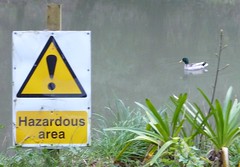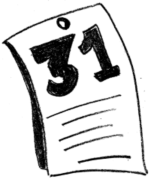A still-relevant article from a few years ago.
Read MoreImage by Tumisu, please consider ☕ Thank you! 🤗 from Pixabay

Image by Tumisu, please consider ☕ Thank you! 🤗 from Pixabay
A still-relevant article from a few years ago.
Read More The trouble with being too nice when commenting on something is that sometimes the underlying message just doesn’t get through. This applies whether you’re looking at students’ work, observing trainee teachers or evaluating a school’s ICT provision.
The trouble with being too nice when commenting on something is that sometimes the underlying message just doesn’t get through. This applies whether you’re looking at students’ work, observing trainee teachers or evaluating a school’s ICT provision.
Don’t get me wrong: I’m not advocating going in guns blazing, being really negative or thoroughly obnoxious. But if you don’t point out the shortcomings in whatever it is you’re looking at – or, at least, ask the sort of questions that will lead them to realise them for themselves – then really you’re not being nice, you’re being dishonest.
 A task a day for 31 daysLooking at data is all very well but doesn't tell the whole story. In my opinion you also need to see what goes on in a lesson.
A task a day for 31 daysLooking at data is all very well but doesn't tell the whole story. In my opinion you also need to see what goes on in a lesson.
This is potentially a sensitive subject: nobody likes to feel they're being monitored. I think it is therefore quite important that everyone in your team, including yourself, has at least one lesson observed. If possible, arrange it internally, that is to say, have members of your team observing each other rather than bring in an outside colleague, unless that is unavoidable.
 Recording the lesson on video can be useful -- although a pocket camcorder will do!If possible, have the lesson recorded on video. That can obviate the need for any elaborate cover arrangements and has the added advantage that the observer and the observed can look at the lesson together. This is quite useful because, done properly, it leads to a good discussion that can benefit both parties. Indeed, if people are brave enough, and trust each other enough, all such videos can be discussed by everyone in the team on a training day, or as part of a special team meeting (other ideas for team meetings will be covered on another Day).
Recording the lesson on video can be useful -- although a pocket camcorder will do!If possible, have the lesson recorded on video. That can obviate the need for any elaborate cover arrangements and has the added advantage that the observer and the observed can look at the lesson together. This is quite useful because, done properly, it leads to a good discussion that can benefit both parties. Indeed, if people are brave enough, and trust each other enough, all such videos can be discussed by everyone in the team on a training day, or as part of a special team meeting (other ideas for team meetings will be covered on another Day).
This has to be a matter of mutual agreement to some extent. For example, the person being observed might ask the observer to pay special attention to the way they use the whiteboard. The greater part of the observation has to be on whether or not the students are learning, or learning quickly enough. That means that it's fine, in my book, for the observer to ask students questions in order to ascertain their understanding, as long as, obviously, that they don't disrupt the lesson by doing so.
If you're going to assign a grading system to different aspects of the lesson, you will need to ensure that everyone in the team understands and uses the same system in the same way as each other.
The sort of things you might wish to focus on include the following, which I have placed in alphabetical order:
This is not a definitive list, of course. Obviously, I should not advise trying to observe all of these in a single lesson!
As team leader, you are concerned with the quality of the educational technology as a whole, and lesson observations across the board can be really helpful in this regard. You may, for example, pick up on the fact that colleagues don't use the interactive whiteboard much. Is that because they have not received adequate training?
Or perhaps the pace tends to be too fast, leaving some students behind. Is that because they're concerned about covering the whole scheme of work in time? If so, does that suggest that the scheme of work is too crowded, or that more teaching time is needed?
Perhaps now that you come to look at it, the quality of your accommodation isn't wonderful. Is it possible to make a case for some refurbishment in the next financial year?
Of course, the bottom line is that as team leader you need to know what's going on in actual lessons. You can't rely on reports or statistical data. You have to actually see it for yourself. That doesn't have to be done in a draconian way. It doesn't even have to be done too often, especially if you have cultivated an ethos of nobody minding other people wandering into their lessons unannounced. But it does need to be done as it is a good means of finding out useful information and gaining an overview of learning and teaching in your area of the curriculum.
If you recall, each Day in the series is intended to include an activity that takes no more than 15 minutes. Clearly, you can't observe everyone's lessons in 15 minutes -- although you may wish to suggest that nobody's lesson is observed for more than 15 or 20 minutes, which makes the process more manageable. You may even wish to focus on the start or end of each lesson rather than all of it.
So I suggest that you spend your 15 minutes today reflecting on what's been written here, and perhas drawing up a rudimentary timetable of which lessons could be observed when -- starting with your own.
(c) Terry Freedman All Rights Reserved